Isaac Newton was born on 4th January, 1643 in the county of Lincolnshire, England. His father’s name was also Isaac Newton! His father had died three months before he was born. Newton was tiny and very weak at birth. His mother said that he could fit into a quart size mug, which is about the size of a litre.
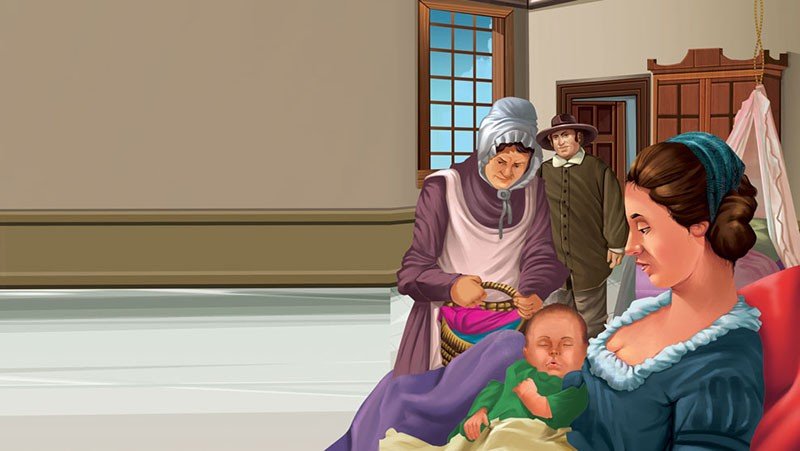
When Newton was three years old, his mother remarried a clergyman. She went to live with him. Isaac Newton then lived with his grandmother. His mother returned when her second husband died. He went to live with her again. She took him out of school to make him a farmer. But he did not like farming. He went back to school.
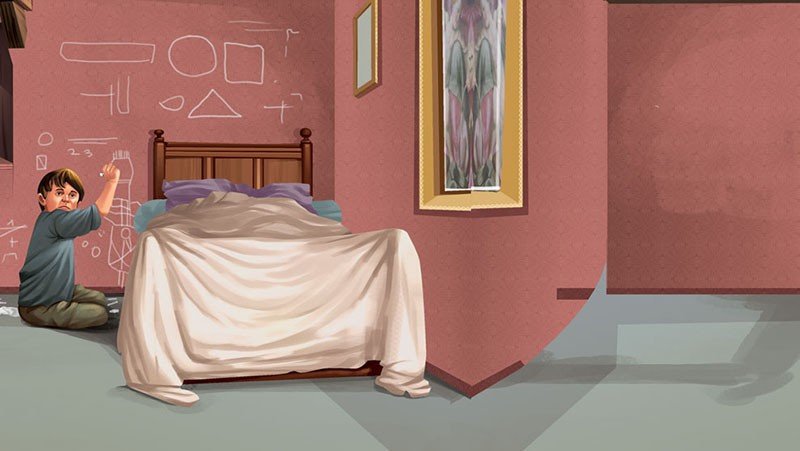
Isaac Newton went to Grantham Grammar School. He loved to study maths and science. He liked to draw and paint too. He covered the walls and the ceilings of his bedroom with all sorts of colours.

Isaac Newton was always a very good student. He loved making sundials and building model windmills. But he was expelled from school when he was about 12 years old. It was because he fought with one of the students.

Newton went to Trinity College, Cambridge when he was 19 years old. He couldn’t afford to pay for it. So he worked parttime as a valet, which was like being a servant. He waited tables (i.e. to serve food and drinks as a waiter) and cleaned the rooms of wealthy students. The university saw how talented he was. They gave him a scholarship.

Isaac Newton studied mathematics, physics and astronomy at college. He read the writings of Galileo, Nicholas Copernicus and Johannes Kepler. During that time, he bought a difficult book on Maths but didn’t understand it. It is a wonder that later he became a very famous mathematician.

After finishing his study, Newton became a professor at Cambridge. He was just 27 years old! He spent much of his life at Cambridge. Newton was also elected to represent Cambridge University as a member of Parliament. While he worked here for a full year, he only ever said one sentence, i.e. he asked someone to close an open window!
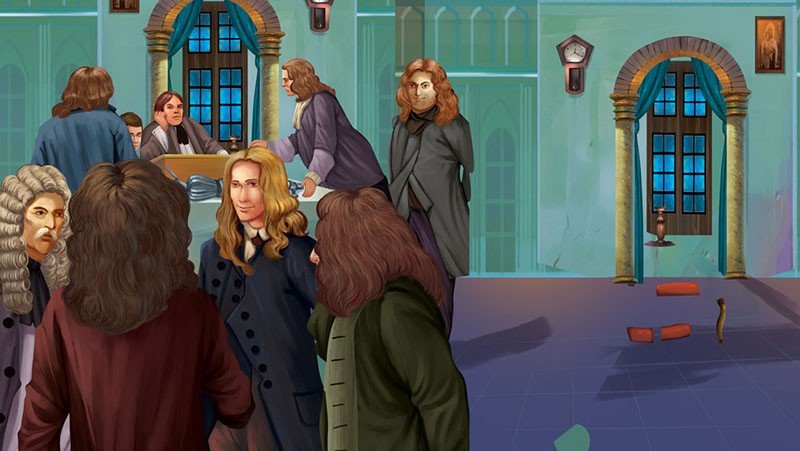
At Cambridge, Newton also became a fellow of the Royal Society. Royal Society is a group of scientists in England He was a brilliant man. But he was difficult to be around. He argued with other scientists and was grumpy

Newton was forced to leave Cambridge because of an outbreak of plague. He returned to university after two years. He spent these two years in study and isolation at his home. During that time, he developed his theories on calculus, gravity and the laws of motion. Calculus is a fundamental branch of mathematics. He had called it ‘fluxions’. It is used in engineering and science today.

Newton said that objects fall to the ground when dropped because of gravity. He also said that planets orbit the sun, moons orbit planets, and ocean tides are there because of gravity. This theory is known today as Newton’s law of universal gravitation. Legend has it that Newton got his inspiration for gravity when he saw an apple fall from a tree on his farm. He said, “Whatever goes up, must come down.”

People say that the King’s School in Grantham, Lincolnshire, bought the tree and moved it to its own school garden! Newton published his masterpiece Philosophiae Naturalis Principia Mathematica in 1687. It contained his theory of gravity and his laws of motion. Newton’s laws of motion are the three fundamental laws of physics.

Newton also studied optics. He discovered that white light is made up of a range of colours. He did a famous experiment. He refracted white light with a prism and created the colours: red, orange, yellow, green, blue and violet.
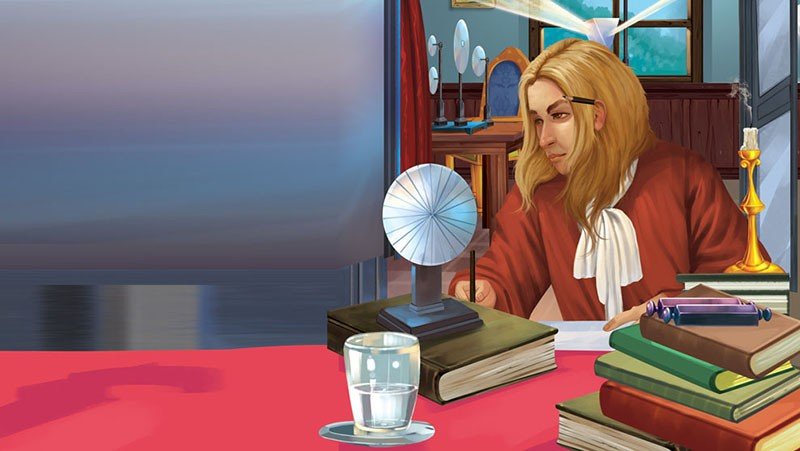
Most scientists in those days thought that prisms coloured the light. Newton was the first scientist to show that colour was decided by light. He wrote a paper about light and colours. He developed Theory of Colour. The theory says that objects have colours because they absorb and reflect different amounts of light.
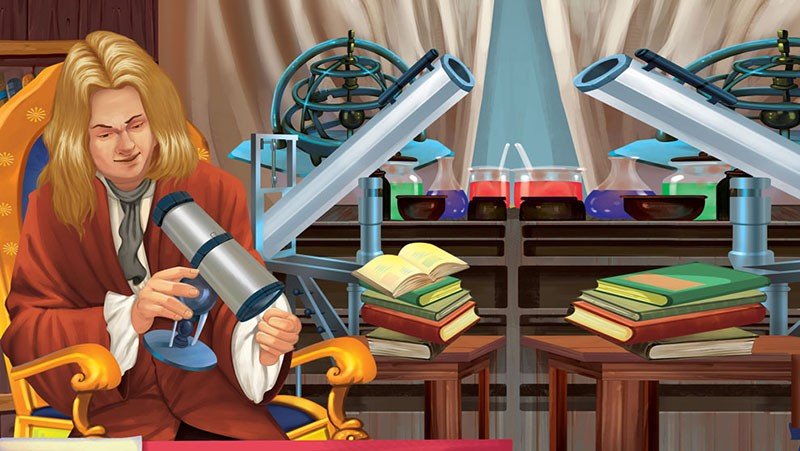
Isaac Newton then created the world’s first colour wheel. He explained the formation of a rainbow. He also invented a reflecting telescope. This telescope uses mirrors to reflect light and form an image. All of the major telescopes used in astronomy are reflecting telescopes.
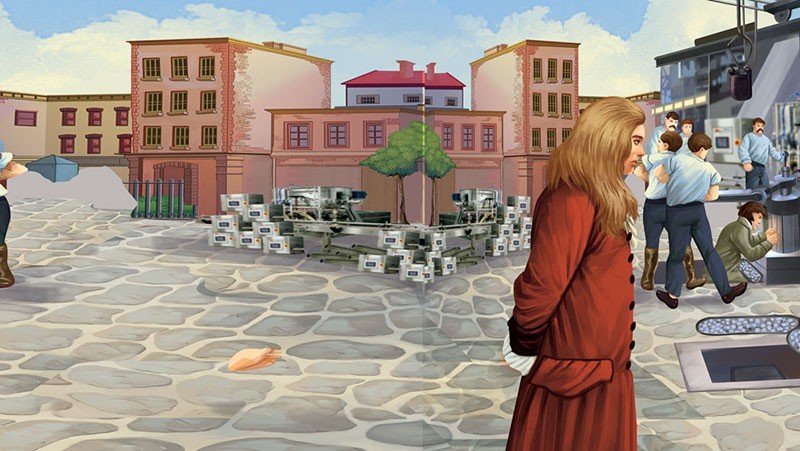
Newton was always a good leader. Later in life, he was made the warden of the Royal Mint; thus he took care of the country’s money. He tried to get rid of corruption as well as to reform the currency of England. Newton became famous throughout Europe.

Newton became president of the Royal Society. He resigned his fellowship and professorship at Cambridge. In the later years of his life, he wrote his views on the Bible. He calculated the date of the Crucifixion of Jesus Christ as 3rd April, 33 AD. Queen Anne knighted him. He was then called ‘Sir’ Isaac Newton. He died on 31st March, 1727 at the age of 84.


